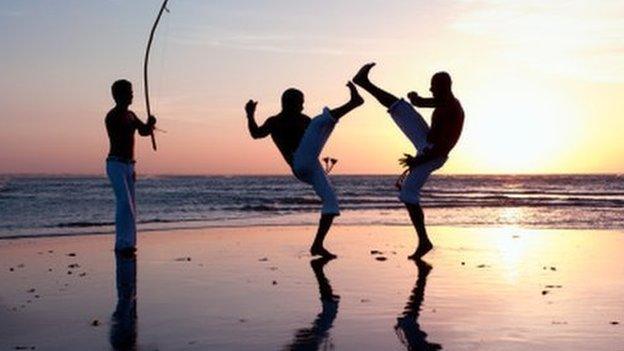Koreas win joint bid to recognise ancient wrestling as cultural gem
- Published
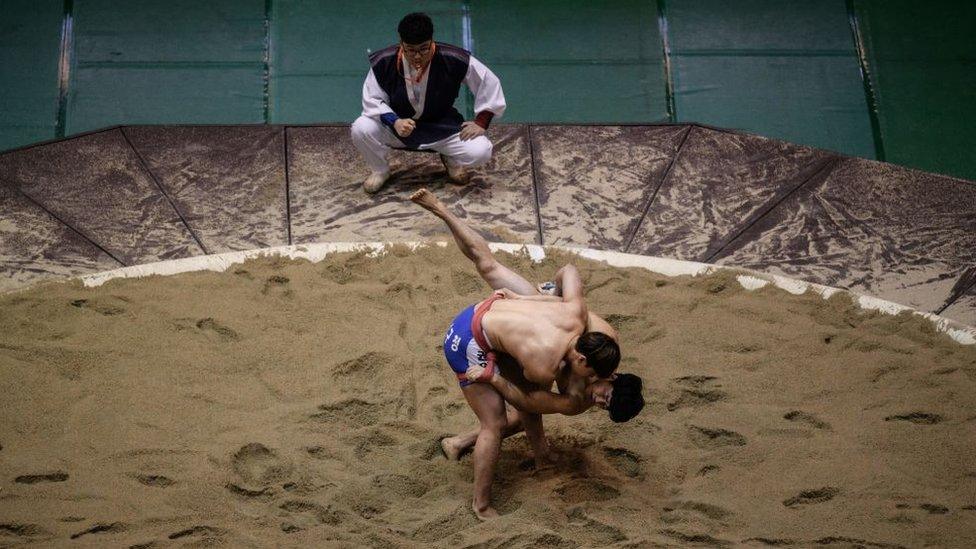
The sport dates back to the fourth century and has some similarities to sumo wrestling
Unesco has accepted a joint bid by North and South Korea and granted world cultural heritage status to Korean wrestling.
The two countries had initially filed separately, but then decided to try a joint approach - a move the UN cultural agency's head called "unprecedented".
The ancient sport is known as Ssirum in the North and Ssireum in the South.
Competitors win by making any part of an opponent's body above the knee touch the ground.
Wrestlers start by facing each other in the pit on their knees, holding a sash - known as a satba - tied around their opponent's waist and thigh. They then rise to their feet and try to bring their opponent to the floor, while continuing to hold onto the satba.
"The joint [bid] marks a highly symbolic step on the road to inter-Korean reconciliation," Unesco's director-general Audrey Azoulay said in a press release, external.
Both Koreas agreed to merge their applications after mediation by the agency.
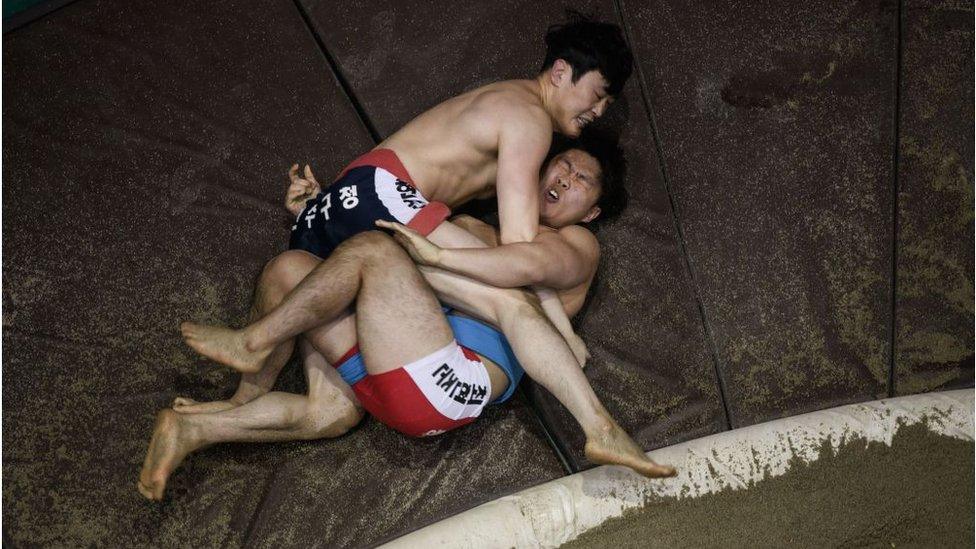
Competitors win by making any part of their opponent's body above the knee touch the ground
The successful bid marks the latest sign of co-operation between the two nations.
North and South Korea have made several efforts in recent years to thaw ties and end hostility on their shared peninsula. This has accelerated under South Korean President Moon Jae-in, who was elected in 2017 and has acted as a mediator between the North and US President Donald Trump.
In October Ms Azoulay met with South Korea's President Moon Jae-in to discuss ways the agency could help boost reconciliation.
At the start of the year the two Koreas agreed to march under a united flag at the Winter Olympics in Pyeongchang.
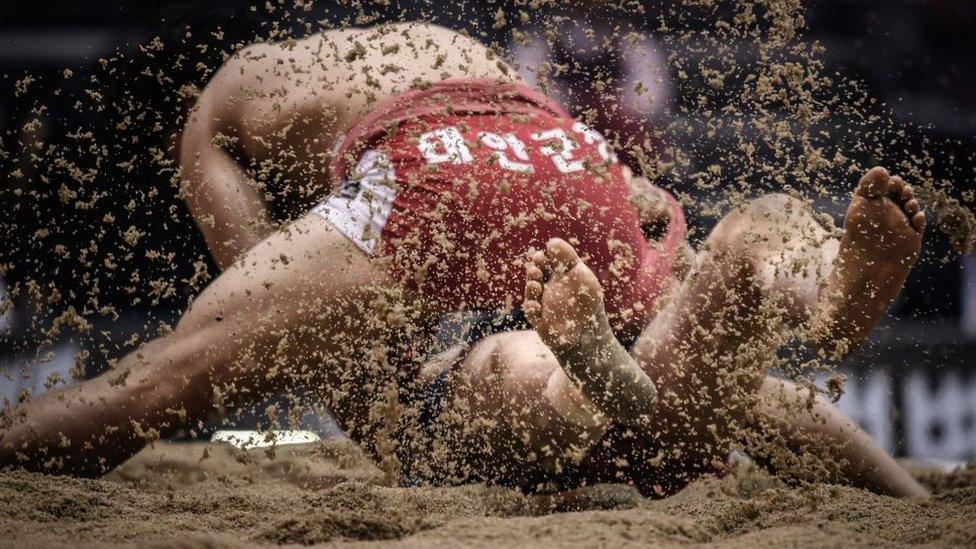
Southern matches use sand, while the North uses a round mattress
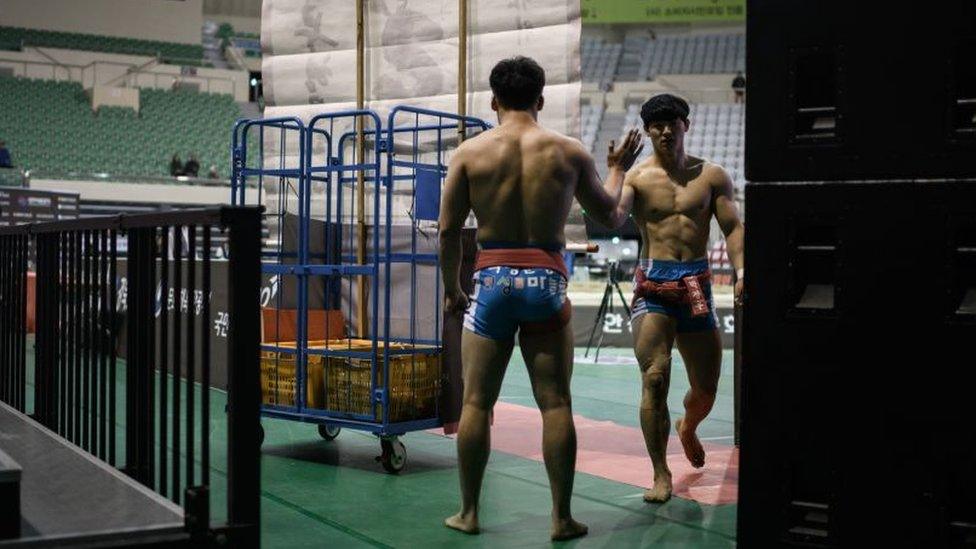
Sleeveless jackets are worn by competitors in the North, while those in the South are topless
Unesco approved the inclusion of the sport on its Intangible Cultural Heritage list at a meeting in Mauritius.
Though largely symbolic, the successful application could raise the status of the sport.


Previously the two nations had submitted separate bids for cultural recognition. North Korea won recognition for its kimchi in 2015, two years after South Korean kimchi made the list.
South Korea submitted a plan to Unesco in 2011, external applying for the demilitarised zone between it and its northern neighbour be turned into a biosphere reserve.
The UN body rejected the proposal the following year after objections from the North.
All photos copyright
- Published17 January 2018
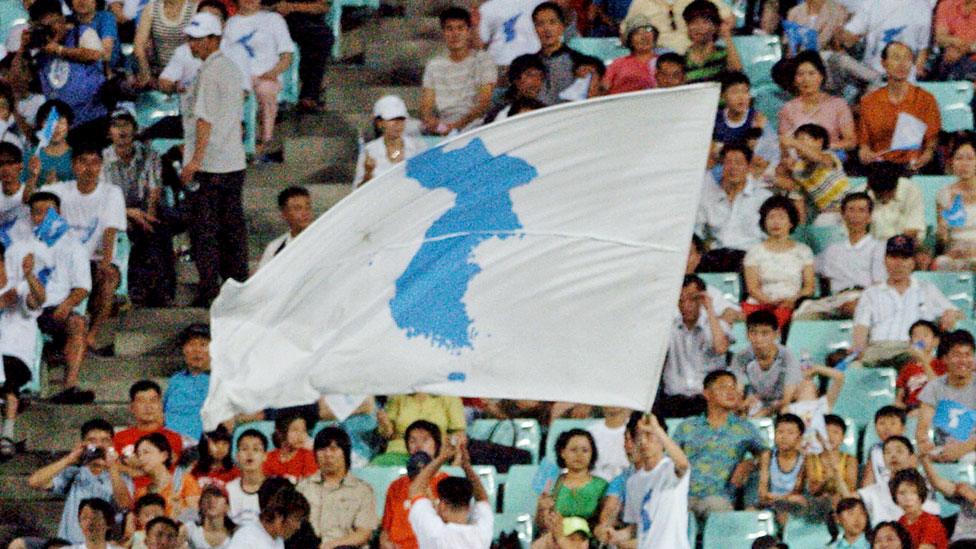
- Published13 January 2018
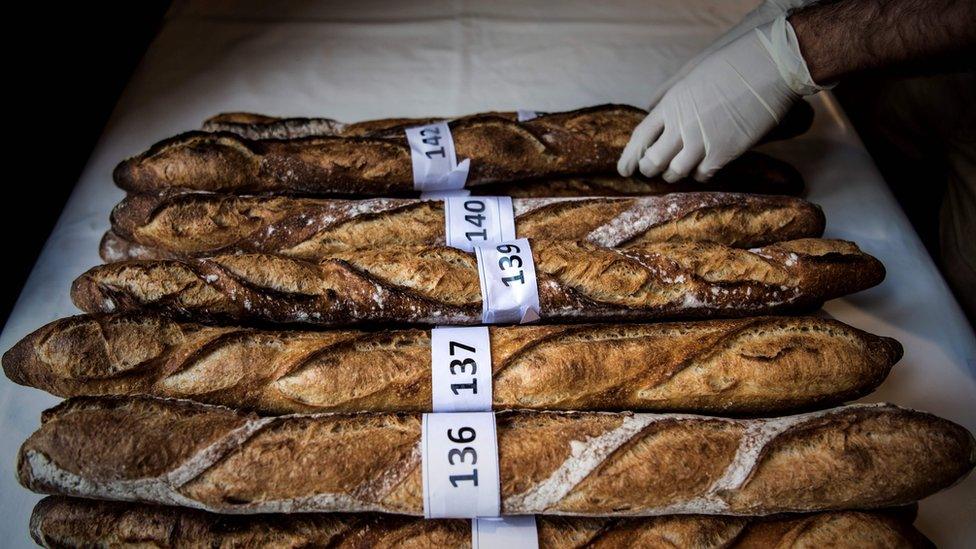
- Published7 December 2017

- Published24 November 2015
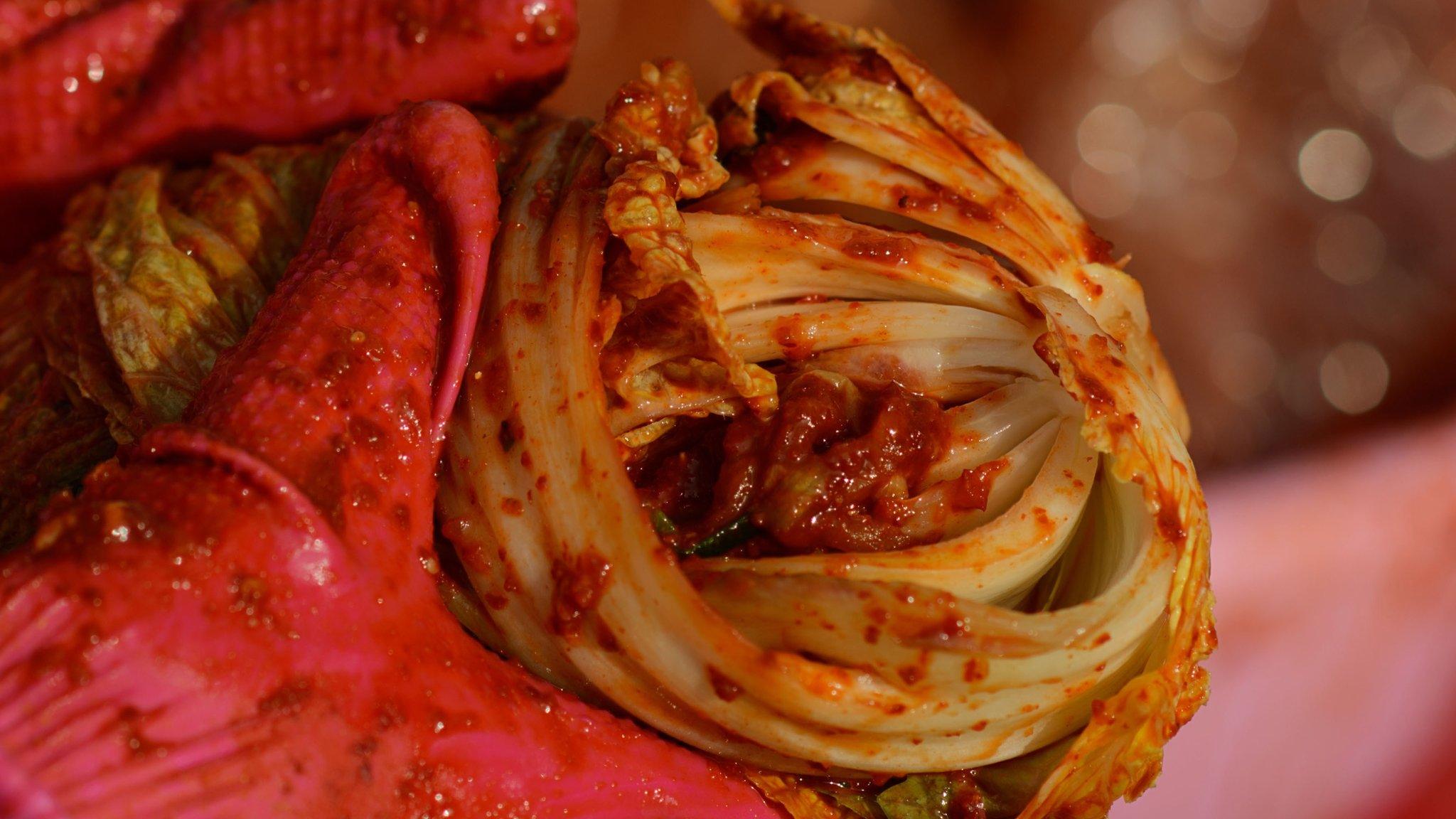
- Published26 November 2014
